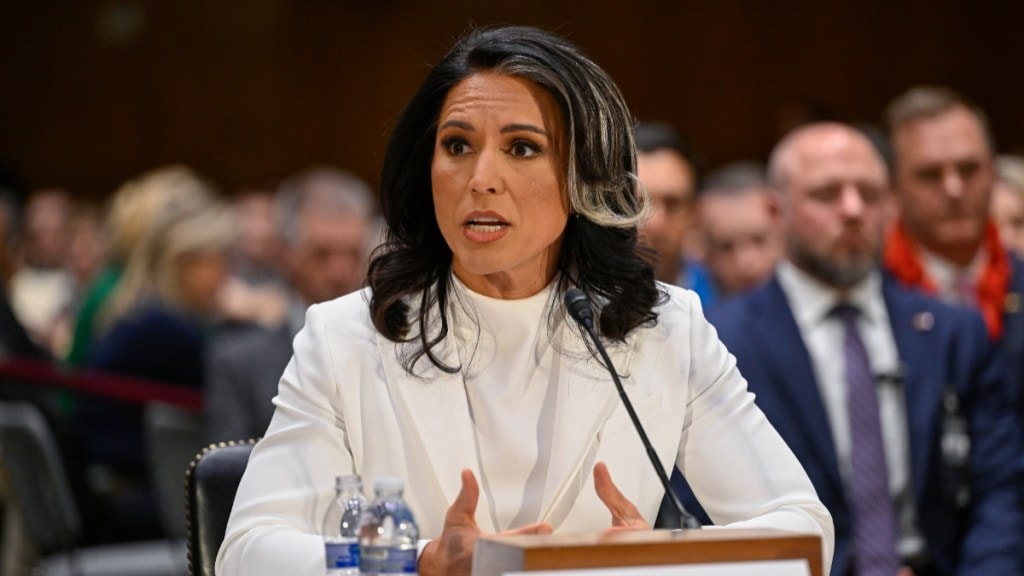Indian-American Tulsi Gabbard, the former Congresswoman nominated by President Donald Trump to head US intelligence agencies, has accused Democratic senators of promoting religious bigotry towards Hindus. During her confirmation hearing with the Senate Select Committee on Intelligence, Gabbard raised concerns about the discrimination she has faced because of her Hindu faith.
Gabbard in her statement said, “Democrats have accused me of being Trump’s puppet, Putin’s puppet, Assad’s puppet, Modi’s puppet, but what truly unsettles them is I refuse to be their puppet.”
She shared her belief that the discrimination she faces is not just personal, but part of a broader attempt to foster religious bigotry against Hindus and Hinduism. She added that anyone genuinely curious about her personal journey with Hinduism was welcome to visit her social media account, where she would share more about her beliefs.
Gabbard also highlighted the instances where Democratic senators had targeted the religious beliefs of Trump’s judicial nominees. She specifically cited the attacks on Amy Coney Barrett and Brian Buescher, condemning such actions as religious bigotry. “I condemned those actions as a Democrat in Congress at the time, as religious bigotry must be thoroughly condemned by all of us, no matter the religion,” Gabbard stated.
Watch the video here:
Referencing Article 6, which prohibits religious tests for public officeholders, she remarked, “Unfortunately, there are some Democrat senators who still don’t understand the principle of freedom of religion and Article 6 of the Constitution. No religious test shall ever be required as a qualification to any office or public trust under the United States.”
Gabbard’s nomination to lead US intelligence agencies faces significant hurdles. Her past meeting with Syrian President Bashar al-Assad in 2017 has come under heavy scrutiny, as well as her support for pardoning NSA whistleblower Edward Snowden. Her views on Russia’s invasion of Ukraine and opposition to renewing certain aspects of the Foreign Intelligence Surveillance Act (FISA) have added to the skepticism surrounding her confirmation.


